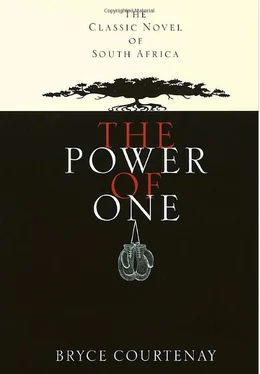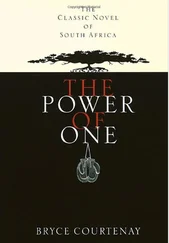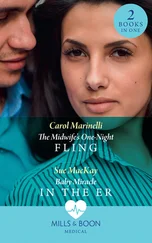Брайс Куртенэ - The Power of One
Здесь есть возможность читать онлайн «Брайс Куртенэ - The Power of One» весь текст электронной книги совершенно бесплатно (целиком полную версию без сокращений). В некоторых случаях можно слушать аудио, скачать через торрент в формате fb2 и присутствует краткое содержание. Жанр: Современная проза, на английском языке. Описание произведения, (предисловие) а так же отзывы посетителей доступны на портале библиотеки ЛибКат.
- Название:The Power of One
- Автор:
- Жанр:
- Год:неизвестен
- ISBN:нет данных
- Рейтинг книги:3 / 5. Голосов: 1
-
Избранное:Добавить в избранное
- Отзывы:
-
Ваша оценка:
- 60
- 1
- 2
- 3
- 4
- 5
The Power of One: краткое содержание, описание и аннотация
Предлагаем к чтению аннотацию, описание, краткое содержание или предисловие (зависит от того, что написал сам автор книги «The Power of One»). Если вы не нашли необходимую информацию о книге — напишите в комментариях, мы постараемся отыскать её.
The book is made to movie with the same name.
The Power of One — читать онлайн бесплатно полную книгу (весь текст) целиком
Ниже представлен текст книги, разбитый по страницам. Система сохранения места последней прочитанной страницы, позволяет с удобством читать онлайн бесплатно книгу «The Power of One», без необходимости каждый раз заново искать на чём Вы остановились. Поставьте закладку, и сможете в любой момент перейти на страницу, на которой закончили чтение.
Интервал:
Закладка:
But it was the speedball which I grew to love. Gert, the young warder who spoke no English, was also on the boxing squad and we’d become firm friends. He’d modified an old punching ball in the prison workshop so that it stood low enough for me to reach.
I can remember the first day when, after many weeks of practice on the speedball, I achieved a continuity of rhythm, the ball a blur in front of my boxing gloves. I imagine Fred Astaire or Bojangles must have felt the same way when they got their first complete tapdance sequence from their taps.
After several weeks Lieutenant Smit walked over to watch me. My heart pounded as I concentrated on keeping the speedball flurried, a blurred, rhythmic tat-tat-tat-tat of leather on leather. ‘You’re fast, Peekay. That’s good,’ he said and then walked away. Two years later when I mastered a difficult passage in a Chopin prelude, the thrill was minor compared to Lieutenant Smit’s praise. They had been the first words he had specifically directed at me in the six months I had been on his squad.
Doc’s Steinway was kept in the prison hall, a fairly large room with a sprung wooden floor used mostly for tiekiedraai dancing and other events in the lives of prison officers and their families. There was also an upright French Mignon piano, for Doc’s Steinway was not to be used except to play classical music. This was an express order from Kommandant Van Zyl, who pointed out that a peeano of such superior qualities should not be expected to play tiekiedraai or to accompany the banjo or accordion. Naturally his wishes were respected and the Steinway became a symbol of something very superior which, in the eyes of the prison officers and their families, elevated them and gave them a special social status. Doc and I, the only two people who played on the Steinway, were included in this status. While my own playing was elementary and far from competent, it was respected as proper music and was referred to as my gift. The fact that the great German professor of music gave me lessons was the only confirmation needed that I must be a budding genius. Doc was kind enough never to contradict this opinion. While being the most honest person I have ever known, he was not a fool. He quickly learned that every small advantage in the prison system was mental capital in the bank, but it was a shame that his brilliance as a teacher was wasted on such inferior clay.
I visited the cactus garden most days on my return from school and every Sunday after church I went with Dee and Dum to clean Doc’s cottage and work in the garden. Doc and I discussed the progress of the cactus garden in detail from a chart prepared by him of every succulent and cactus species in the garden. Considering there were several thousand, it was an intellectual task of some brilliance. In correcting the chart, which took me some weeks, I found that he had only made eleven errors. Taking a small patch of garden at a time from the chart, I reported on its progress. Doc made notes on the comings and going of blossoms and instructed me when to thin or separate plants. The separated plants I put in a hessian bag and brought it to the prison where Doc had started a second cactus garden. Sometimes insects ate a cactus bloom and I’d capture a specimen in a matchbox and bring it to Doc for identification. If it was within my capacity to do anything about them, he instructed me in their elimination. This was rare. Doc believed all creatures had a place in the system and, in the end, everything sorted itself out. It was only when an insect appeared in such numbers that it was likely to disrupt the ecology of the garden that he instructed me to act. He would liken this to a locust plague which, though a natural thing, was a riotous act of nature which should be contained. In these cases he supplied the know-how, Mrs Boxall or my granpa supplied the materials and Dee and Dum supplied the labour. Usually the enemy was overcome. The girls saw this as part of their Sunday outing and took great pride in their work. They enjoyed the business of working with the soil, though I dare say so much effort on something as silly as a cactus must have left them bemused.
Marie, the little nurse from the hospital, had been invited home soon after my jaw incident and had become firm friends with my mother. She loved needlework and would sit for hours chatting away to my mother and doing buttonholes and making shoulder pads and bits and pieces. It seemed certain she would soon fall into the clutches of the Lord.
Being a farm girl she understood Dee and Dum and to my surprise only bossed them about a little. She taught them to cook a number of new dishes, including pumpkin scones and cornbread and they soon became my favourites. I took her to see Doc’s cottage one Sunday afternoon; the two black girls were silent for most of the way. When we arrived at the cottage, Marie started to tell them what to do; their faces grew longer and longer as the afternoon progressed. At last even I saw the mistake I had made, and Marie, much to the delight of Dee and Dum, wasn’t invited again. I think they both liked Marie a lot, but there are certain things between women that mustn’t be tampered with. Doc’s house wasn’t his any more, it belonged to Dum and Dee, and Marie’s imperious instructions were those of an intruder, or even a guest who had forgotten her manners.
Marie brought sweet potatoes for me from her farm, and fresh eggs, sometimes even a leg of pork, a churn of farm butter or several pounds of home-cured bacon. She always brought a large bunch of cured tobacco leaf for my granpa. He smoked a Rhodesian blend called African Drum and hated the sharp, raw, unblended tobacco from Marie’s farm, though he was much too polite to tell her. He would hang it by the stems from the ceiling of the garden shed. Occasionally he added a couple of large leaves to a forty-four-gallon drum filled with rainwater which stood directly outside the shed. The tobacco-infused water was used for aphides on the roses. But the water required only a tincture of tobacco, and the supply hanging from the ceiling grew alarmingly. Eventually it was to become one of the most important factors in my rise within the prison system.
For the first year Geel Piet, the half-caste, was a part of morning piano practice, for he was always in the hall on his knees, polishing the floor. After a short while he became entirely invisible, a shadow in the background who greeted Doc and myself with, ‘ Goeie Môre, Baas en Klein Baas .’ He followed this with a toothless smile and then a soft cackle as though the day was perfect and he couldn’t think of any place he’d rather be. Doc, who was no racist, and I who had mixed with servants all my life, both returned his greeting. It was forbidden to talk to any of the non-European prisoners and our careless replies must have been a great encouragement to the old man.
Geel Piet was small and battered-looking. His left eye hung lower than his right and the bottom eyelid drooped, showing more of the eye than one would normally see. Both eyes were permanently bloodshot and somewhat weepy. His nose had been completely flattened and his deep yellow face was criss-crossed with scars. A section of his bottom lip had been cut away, leaving a purple wedge of scar tissue to droop in a line of permanent disappointment from the corner of his mouth. He stood around five foot two inches on his buckled legs, for they were more than simply bandy, the result of having been broken several times and no doubt carelessly mended. Had he been able to straighten them he might well have been four or five inches taller. In the process of surviving, Geel Piet had achieved an outward appearance which would have made it near impossible for him to last for very long outside the jail system. He had worn out his luck in the outside world, if indeed he’d ever had any. Born in District Six, the notorious coloured township in Cape Town, Geel Piet had been in and out of jail for forty of his fifty-five years. He took pride in the fact that he knew the workings, at an intimate level, of every major prison in South Africa, and he was the grandmaster in the art of camouflage. Should a warder beat him for whatever imagined reason, Geel Piet bore no animosity, no hate. He had long since transcended both, and regarded a beating as self-inflicted because it resulted from some piece of carelessness. Geel Piet had no sense of morality, no sense of right or wrong. He existed for only one reason, to survive the system and to beat it. To gain more from it than he was entitled to. He had long since realised that, for him anyway, freedom was an illusion. He had accumulated years of sentences, he wasn’t quite sure or no longer cared how many, and was realist enough to know that he was unlikely to survive the system at his age and with his deteriorating health.
Читать дальшеИнтервал:
Закладка:
Похожие книги на «The Power of One»
Представляем Вашему вниманию похожие книги на «The Power of One» списком для выбора. Мы отобрали схожую по названию и смыслу литературу в надежде предоставить читателям больше вариантов отыскать новые, интересные, ещё непрочитанные произведения.
Обсуждение, отзывы о книге «The Power of One» и просто собственные мнения читателей. Оставьте ваши комментарии, напишите, что Вы думаете о произведении, его смысле или главных героях. Укажите что конкретно понравилось, а что нет, и почему Вы так считаете.












